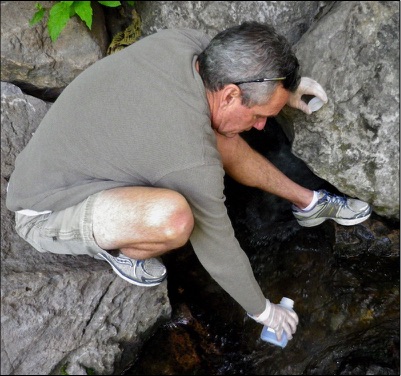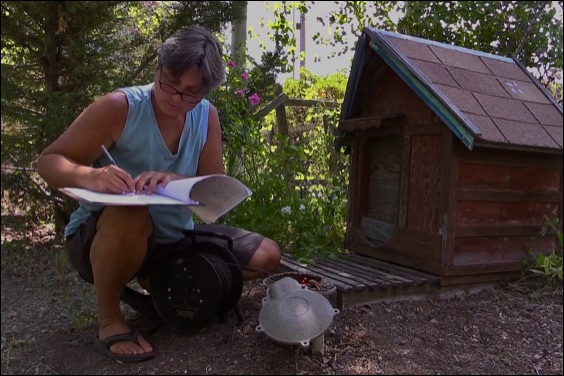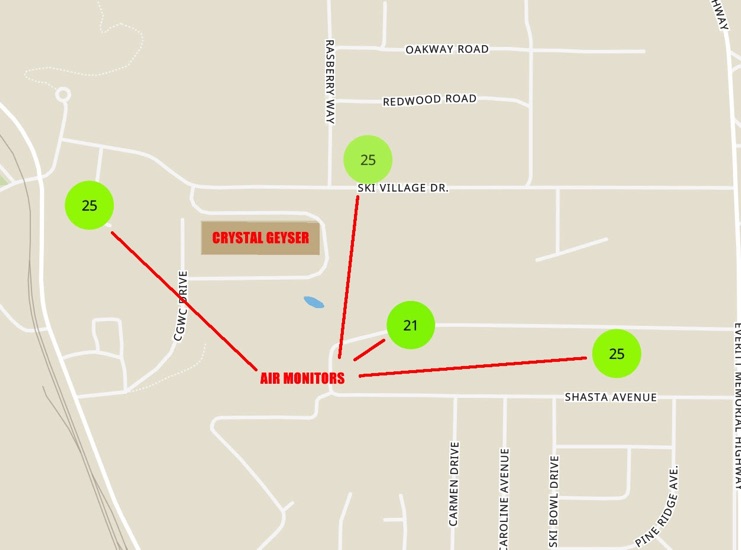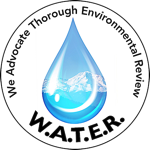

State Water Projects:
Two major water projects are proposed in the State of California. One is an expansion of the federal Central Valley Project that would increase the height of the Shasta Dam located about 60 miles south of the Mt. Shasta area. The original dam, constructed in the 1940s, displaced Indigenous Peoples from their traditional lands, and promised compensations have not yet materialized. It blocked salmon from their eons-old spawning grounds and significantly reduced the salmon populations above the dam. Raising the dam would further impact local Tribal lands and cultural resources. It will also negatively impact the McCloud River, a tributary to Shasta Lake and the Sacramento River, which is currently protected under the California Wild and Scenic Rivers Act. The purpose of the dam raising is to capture more precipitation run-off and spring outflow to deliver to downstream users.
Secondly, California State is proposing the “Delta Conveyance” Project, an effort to pump even more water (the State Water Project already pumps water from the Bay area delta to areas in southern California) from the Sacramento River (above the Delta) to agribusinesses and municipalities in the south. The project poses serious threats to the Delta, which will be deprived of needed water for sustaining the delta ecology and economy, and could negatively impact our region because ecology moves both ways along the Sacramento River.
Of course the two projects are ultimately linked in that some of the water delivered from the Shasta Dam will likely be shunted to southern California agribusiness.
W.A.T.E.R.'s comment letter for the Delta Conveyance Project NOP
W.A.T.E.R.'s comment letter for the Westlands Shasta Dam Raise NOP
For some further background, please read "The (Water) Fix Is In."

Proposed Beverage Bottling Plant in Siskiyou County:
Crystal Geyser Water Company has proposed operations of a beverage bottling plant in Siskiyou County just outside the boundary of Mt. Shasta City. W.A.T.E.R. formed to demand an Environmental Impact Report (EIR) be done on the project, as required by the California Environmental Quality Act, because of the likelihood that significant negative impacts would occur from plastic, air, and water pollution, as well as traffic, noise, and over-pumping and degradation of the underlying aquifer. The County relented and produced a woefully insufficient and scientifically flawed study, then approved the project (see the “History” tab for details). We are currently challenging the validity of the EIR and the County’s approval in court.
Read the expert critiques of the EIR from our CEQA law attorneys and environmental scientists here:
Parker Groundwater, Hydrogeologic Consultant
Brohard and Assoc., Traffic Consultant
Autumn Wind Assoc., Air Quality Consultant
Geoff Hornek, Acoustical Consultant
Peter Martin, Waste Treatment Consultant
Marsha Burch, Final EIR Appeal
---------------------------------
See also Dan Axelrod's Critique of Crystal Geyser's claims about Mt. Shasta's hydrology.
For ALL of the public comments, draft and final EIR and supporting documents click here.

Projects Proposed Locally:
Freeze Ministorage and Carwash:
On the north end of Mt. Shasta City, very near the headwaters of the Sacramento River, a land owner proposed to build a storage facility and carwash. The initial proposal (2017) was poorly defined and after public outcry and pushback from the city, the owner withdrew the proposal. The project resurfaced in 2019 with more detail but with still-inadequate analyses of the environmental impacts. Again, there was public outcry and the City Planning Commission denied a permit for the carwash and required a new application for the storage facility.
Loves Truck Stop:
In 2018 the Loves Truck Stop Corporation proposed a project to construct a large truck stop facility at the south end of the City of Weed off of Interstate 5 adjacent to a residential area and next to a meadow that drains into Boles Creek, a tributary of the Klamath River. Significant problems with the project include noise and air quality issues for the residents, traffic impacts and pollution of Boles Creek water. In spite of much public concern, the City of Weed approved the project. As of this writing, the project is being challenged in court by the neighboring residents’ association.
W.A.T.E.R.'s comment letter for the Love's Travel Stop FEIR
McCloud Artesian Water Bottling Project:
Although the community of McCloud successfully fought off an attempt by Nestle to build a water bottling plant in their community in the early 2000s, a group of investors returned in 2015 with another proposal for a water bottling plant.
W.A.T.E.R.'s comment letter for the McCloud Artesian Water Bottling Facility Project NOP
Mt. Shasta City Wastewater Infrastructure:
The City of Mt. Shasta has approved two major upgrades for the City conveyance and wastewater treatment infrastructure. Because these upgrades are not only necessary for the community but also for the Crystal Geyser beverage bottling plant, we scrutinized them carefully. The City has approved the projects, but has not yet begun construction. We continue to follow and evaluate City infrastructure projects for environmental impacts.

Reducing Plastic Pollution:
Help Reduce Plastic Pollution!
Plastic pollution has become a major global environmental emergency. If operating, Crystal Geyser Water Company could be producing between 0.5-1 million single use plastic bottles per day thus contributing to this global scourge. We find this unacceptable and are promoting multiple strategies for reducing global plastic pollution.
Water Bottle Refill Station in Parker Plaza:
Water has been working with the City of Mt Shasta’s Beautification Committee and other local groups to install a water bottle refill station in Parker Plaza in Downtown Mt. Shasta. Completion of the project is scheduled for the summer of 2020. Now locals and the many visitors to Mt. Shasta will be able to refill their reusable water bottles when out and about downtown.
Sign the Petition:
Nina Hyatt, volunteer extraordinaire, has prepared a locally focused petition asking Siskiyou County retailers to make available and sell a wider variety of items that are neither made of plastic nor packaged in plastic. The petition suggests various types of eco- friendly, non-plastic-containing products on the market that could be made available in our local stores, and also asks that retailers remove plastic-bottled beverages from their shelves. Once completed, we will be taking this petition directly to store managers and owners and request these changes. We invite you to sign the petition HERE.
Tips to Reduce Your Plastic Consumption:
Plastic beverage bottles are not the only source of plastic pollution. There are many unnecessary ways plastics have invaded our lifestyles. We have prepared a “Tip Sheet” with suggestions for how you can reduce plastic consumption in your own life. Check out the list for some suggestions on how to get started, and be creative in designing your own alternatives to plastics. Click here to read our piece, co-written with volunteer Molly Brown, in the Mt. Shasta Herald’s Sustainability Column.
Break Free From Plastic Pollution Act:
Senator Udall and Representative Lowenthal have introduced into congress a bill to address the dire plastic pollution issues facing the planet and the disproportionately large part the US plays in that problem. (The full text of the bill can be found HERE: A summary and extensive background materials can be found HERE.) While the legislation is a good start at tackling the problem, there need to be stronger actions taken to reduce plastic production and the many negative environmental impacts of that industry. See W.A.T.E.R.’s comments on the proposed legislation and the introduced legislation.

Monitoring the Environment:
Water Quality and Quantity:
W.A.T.E.R. is periodically monitoring water quality at Big Springs and water quality and ground water levels in domestic wells surrounding the CGWC bottling plant. This data will provide baselines for comparison in the event that CGWC (and/or other industrial operations in the area) begin operations.

The water quality tests monitor for the presence of 16 metals, 41 volatile organic compounds, and 51 semi-volatile organic compounds that are common industrial pollutants with potential negative environmental impacts. A typical data set from 2015 indicated the water at Big Springs is relatively clean.
We note that the test does not test for bacterial contamination and although it tests for over 100 chemicals, it does not test for everything, so we can only claim the water is free from these specific chemicals above levels of detection. Moreover, each test is a snapshot in time, thus the results from 2015 make no claims about current water quality.

The ongoing data collection of ground water elevation is determining baseline levels and seasonal and drought-related fluctuations in the aquifer(s) underlying the neighborhood surrounding the bottling plant. In the event that the bottling plant begins operations, this data will help determine the impact of industrial pumping on the aquifer.
Air Quality Monitoring
We have placed four air quality monitors surrounding the bottling plant and a fifth at a distance to compare with, likewise to collect baseline air quality data for comparison with the air quality during possible future operations of the plant. The many proposed truck trips will contribute substantial particulate pollution in the area. For more on our air quality monitoring program, click here.


Proposed Upgrade of Local Power Infrastructure:
CGWC’s energy requirements to brew teas and bottle flavored water and carbonated fruit juices surpasses the capacity of the existing electrical system, thus Pacific Power initiated plans to increase the electrical capacity and upgrade infrastructure to meet CGWC demands. This effort has been cloaked as a need to modernize the system for all rate payers, and yes, all rate payers will be footing the bill for what is essentially an upgrade to support CGWC needs. The upgrades required approval from the California Public Utilities Commission and that application process is a public process, thus W.A.T.E.R., as well as many community members provided public comment questioning the validity of the project and the thoroughness of the environmental review. The CPUC, giving little consideration to a large volume of legitimate public concern, approved the project in 2019.
One of the major issues with the project is the plan to replace existing over-ground power lines with taller power lines. In an area with serious wild fire issues, over-ground power lines pose a serious fire risk. Yet the CPUC ignored community demands for the power lines to be put underground, denying any increased risk from doing so. W.A.T.E.R. continues to push for undergrounding of the power lines. Read our opinion piece in the Mt. Shasta Herald for suggestions on how you can help.
W.A.T.E.R.'s comment letter to the CPUC for the Lassen Substation Project

